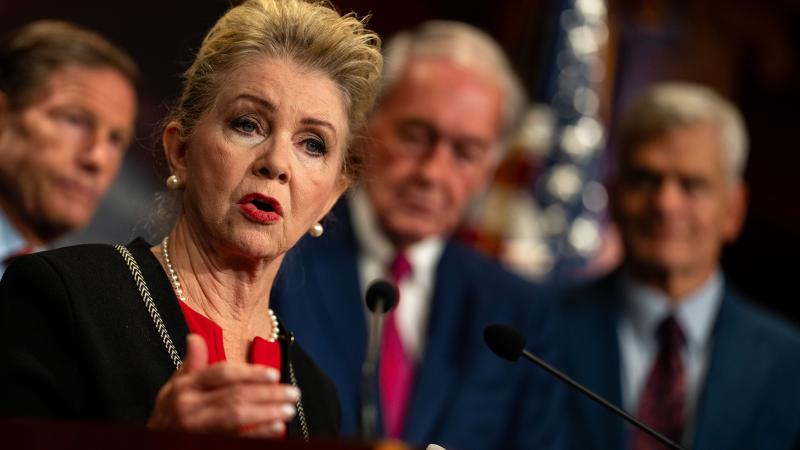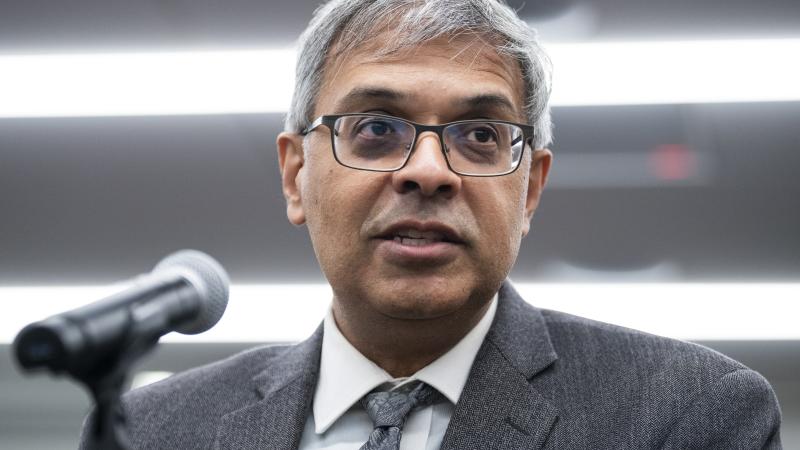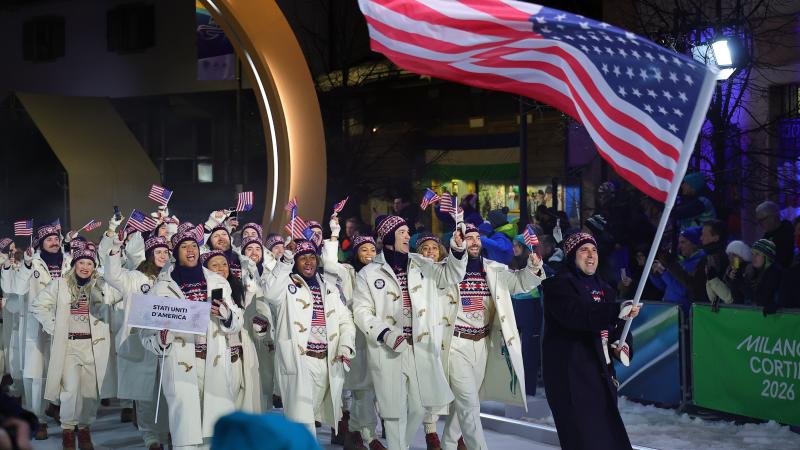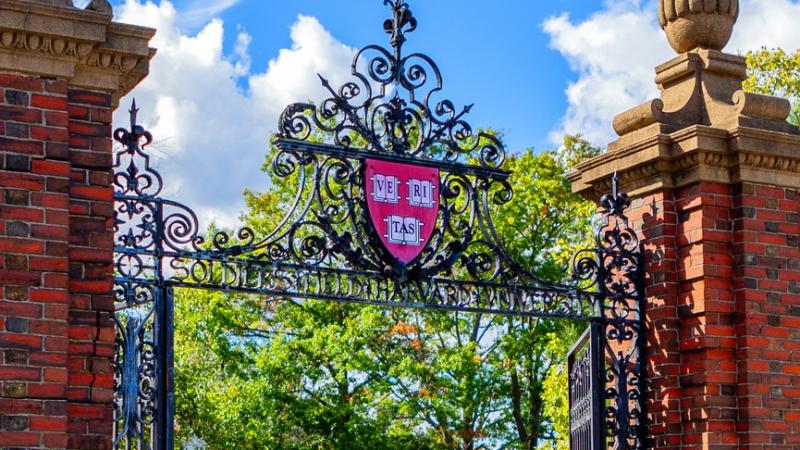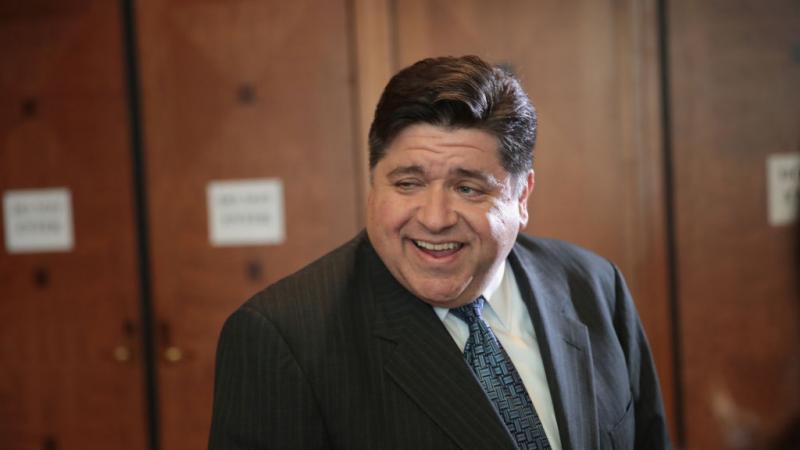Rep. Biggs to introduce DC reform bills to extend Trump control of police, eliminate cashless bail
The bills would extend the president’s emergency authority to 180 days under the Home Rule Act and eliminate the cashless bail policy Trump has criticized.
Representative Andy Biggs, R-Ariz., will introduce two pieces of legislation to amend the D.C. Home Rule Act to give the president a longer period of time to control local police and to reverse the district’s cashless bail policy, Just the News has learned.
Earlier this month, President Donald Trump assumed direct control of the Washington, D.C. Metropolitan Police Department, citing persistently high violent crime in the nation’s capital and a failure by the city and local law enforcement to address it.
Despite local officials and Democratic officials touting official crime statistics that show an estimated 30% decline in violent crime, D.C. is still statistically one of the most dangerous places among U.S. cities. The capital city has the fourth-highest murder rate among all U.S. cities, measuring behind only St. Louis, MO, New Orleans, LA, and Detroit, MI, the latest 2024 data show.
There is also a growing body of evidence introduced by a whistleblower who alleged the crime statistics were manipulated. That would mean, if proven, the city of Washington, D.C. may have a more widespread crime problem than official statistics would suggest.
Police union: D.C. Crime drops by 8% since takeover
The administration has surged federal resources to the city, including using agents from Immigration and Customs Enforcement, the Drug Enforcement Administration, Park Police, Secret Service and National Guard troops to support D.C. police in patrols, investigations, and arrests.
The White House says more than 450 people have been arrested since the takeover, including suspects wanted for crimes ranging from murder to assault on federal officers. The D.C. police union said that overall crime has dropped 8% since President Trump sent federal assistance and took control of local police.
However, the president’s impact is limited both by the Home Rule Act of 1973—which granted D.C. self-governance—and the district’s local criminal codes, which include policies like cashless bail that critics say make prosecuting crimes harder.
Rep. Biggs aims to address both of these issues through new legislation, which will ensure the president “has the necessary time and authority to quell the chaos that has reigned in woke D.C.,” he said.
“When our nation’s capital faces lawlessness, violent crime, and breakdowns in public order, the federal government has a responsibility and a constitutional duty to act decisively,” said Rep. Biggs in a statement delivered to Just the News.
“The District of Columbia is the seat of our federal government, the home of our institutions, and a symbol of American strength. Weak leadership at the local level too often leaves D.C. vulnerable to the chaos of the radical Left,” he said. “President Trump has shown time and time again his commitment to restoring law and order in D.C. and across the country.”
Bill would extend control to 180 days
The executive action signed by the president on August 11 marked the first time the chief executive has invoked Section 270 of the Home Rule Act to assume leadership of the city’s police since the federal district was granted self-governance in the 1970s.
The law provides that the president can exercise control over the local police department under an emergency. However, it stipulates that the president can only exercise that direct control for 30 days, after which he must seek approval from Congress.
The first piece of legislation, known as the Make D.C. Safe Again Act, would amend the Home Rule Act to extend the emergency period in which the president can take control of D.C. police from 30 days to 180 days. The bill would also apply the new timeline to any previously declared emergency, according to a draft of the legislation reviewed by Just the News. This means, if passed, President Trump’s current emergency orders would be extended, allowing more time for the federal effort to reduce local crime.
President Trump previously said that he would work to eliminate no-cash bail in America’s cities, including Washington, D.C., blaming the policy for an increase in crime. Earlier this month, he called on Congress to end the practice. Rep. Biggs’ plans to file a second bill that would do just that.
"No-cash" bail eliminated under proposed law
The Keep Offenders Off Our Streets Act would prohibit the practice of releasing an individual pending trial without “executing an unsecured appearance bond,” according to a draft of the proposed legislation reviewed by Just the News. An unsecured appearance bond is a type of bail in which the defendant makes a written promise to appear in court. It also includes a written promise to pay a specific sum of money if he or she fails to appear.
The bill would prohibit the D.C. Council, the city’s local government, from enacting any laws that would prohibit cash bail and the mayor’s office from enforcing any laws or regulations to do the same. The bill would also strike portions of D.C. bail laws that permit defendants to be released without such a bond.
Washington, D.C. eliminated cash bail in the 1990s over civil rights concerns, particularly because poorer individuals accused of crimes ended up incarcerated until their trials, whereas wealthy defendants could pay their way out of pretrial detention. Proponents of the current system cite statistics that they say show the program’s effectiveness.
According to the most recent data, 87% of defendants are released before trial in the district. Of those, 87% successfully appear for their court date, though this rate has declined from a recent peak of 92% in FY 2021.
Both bills would likely be able to pass the Republican-controlled House of Representatives. However, they would face a steep climb in the Senate, which, though controlled by Republicans, requires at least seven Democratic votes to clear the 60-vote legislative filibuster threshold.
